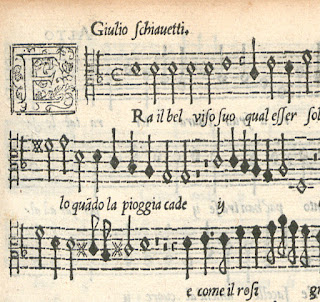To celebrate our tenth anniversary we are re-editing one of our very first publications, the complete edition of the Treviso Cathedral Codice 36 (I-TVd 36).
Pater noster/Ave Maria (SAATB) could be an intended
homage paid to Josquin. The tradition of combining the two texts and
plainchants as parts of a motet had a great relevance on Northern Italy: Adrian
Willaert. Gioseffo Zarlino or Jacquet de
Mantua followed this tradition after Maistre Jhan.
You can buy or download this score here. Remember, you can buy our scores for the price you want to support Ars Subtilior Editions!
(This is the foreword for the complete edition of the Treviso Cathedral Codice 36 we published back in 2012:)
The Treviso Cathedral Codice 36 (henceforth, I-TVd 36) is the oldest polyphonic
manuscript extant in this Cathedral (c. 1530). It is one of the most valuable
musical manuscripts of the 16th century in Northern Italy and also an
essential source for the motets (most of them unica) of Maistre Jhan (c. 1485-1538).
Although the I-TVd
36 is now kept in the Treviso Cathedral Archive, this was not its original
place, as it was probably copied and kept in Ferrara until the end of the 16th
century. This certainty is due to two reasons: 1) the majority of works by
Maistre Jhan (more than a half of I-TVd
36), who served the Dukedom of Ferrara until his death, and 2) the presence
of the circumstance motet Hebe potens
cithara by Magister Symon [Simon of Ferrara], dedicated to the death of one
of Ercole I d’Este’s children, Sigismondo, who died in 1524.
The I-TVd 36
is formed by five partbooks, Cantus, Altus, Quinta pars, Tenor and Bassus. The real voice in each partbook
varies from one work to another, specially the Quinta pars, which is usually a Tenor
or an Altus. The manuscript was
mainly copied around 1530 (perhaps around 1524, year of Sigismondo’s death) and
has two later additions, the short motet Sancta
Maria at the end of the manuscript (the only unnumbered work in I-TVd 36) and an anonymous Mass. A more
detailed codicological description of I-TVd
36 can be found at DIAMM.
The manuscript contains 30 works, 29 motets and the
anonymous Mass, all for five voices. The most representative composer in I-TVd 36 is Maistre Jhan (18 motets),
followed by Jacquet de Mantua and Adrian Willaert (3 motets each), Jean
Lhéritier (2), Magister Symon and Costanzo Festa (1 motet each) plus 3
anonymous works, two motets and a Mass.
Even though the I-TVd
36 contains manuscript versions of works found in other sources (8 motets
by Jacquet de Mantua, Jean Lhéritier and Adrian Willaert), several motets are unica, mainly those by Maistre Jhan.
George Nugent and James Haar in the New
Grove (2001) list nine unica motets in
this source. Furthermore, only one edition of Maistre Jhan’s motets in I-TVd 36, Pater noster/Ave Maria, appears listed on the New Grove article, and it was published on 1897.
As a result, this premiere world edition of I-TVd 36 sheds light on the music in the
Dukedom of Ferrara on c. 1530, and especially on Maistre Jhan, a long neglected
composer linked with the Dukedom for more than 20 years. His motets show an
experienced skill with canons, cantus firmus ostinato, harsh armonies and even
chromatism.
©2022 Jorge Martín











